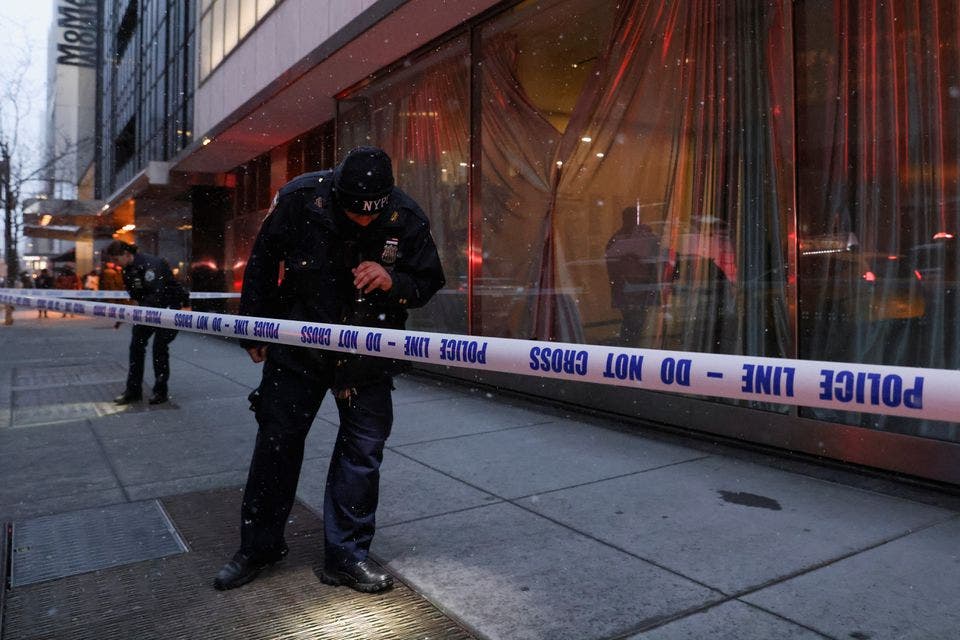
NEWYou can now listen to Fox News articles!
New York City police and Mayor Eric Adams announced a plan for officers to expand their attention beyond 911 calls and monitor for quality-of-life offenses that “can be precursors to violence,” prompting backlash from some advocacy groups who are calling the initiative a return to “broken windows policing” of the late 90s and early 2000s.
Adams and the New York Police Department (NYPD) unveiled the citywide “Crime and Quality-of-Life Enforcement Initiative” on Wednesday, describing the plan as a response “to the increased numbers of shootings and thefts in New York City, as well as the rise in quality-of-life offenses that contribute to crime and disorder.”
NYC MAN ATTEMPTS BROAD DAYLIGHT KIDNAPPING OF TEEN GIRL IN BROOKLYN: NYPD
Right now, there are so many minor violations that are leading up to more violent criminal acts. We’re at the point of anarchy.
The initiative will expand officers’ focus by redeploying them throughout the city and calling on them take proactive measures to prevent crime and engage with the community, the NYPD announced in a press release.
“They will work in tandem to rapidly identify and respond to crime trends and to address the conditions that fuel them,” the release states. “They will be performing best practice for reducing violence crime: proactive engagement with offenders who commit violations that lead up to an act of violence – whether on the streets, in the transit system, or in our public housing developments.”
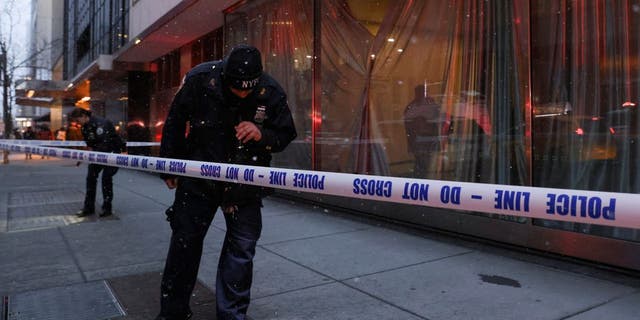
Members of the New York City Police Department (NYPD) search the area near the entrance of the Museum of Modern Art (MOMA) after an alleged multiple stabbing incident, in New York, U.S., March 12, 2022.
(REUTERS/Andrew Kelly)
The department identified several offenses that often precede violence, such as public drinking, dice games, public urination, and open-air sale of narcotics.
The NYPD’s announcement comes just days after a 7-year-old girl suffered a graze wound on Monday when she was “caught in the crossfire of two rival gangs,” police said. And 29 people were shot last weekend, statistics show.
The latest NYPD data show year-over-year increases in murders, robberies, felony assaults and shootings, among other crimes, from March 14 through March 20, 2022.
Nine murders were reported for the week compared to the six recorded from March 14 to March 20, 2021. And 43 people were shot, a 95.5% increase from the 22 wounded last year, the NYPD said. There were 36 shootings reported from March 14 to March 20, compared to the 19 reported during the same time in 2021.
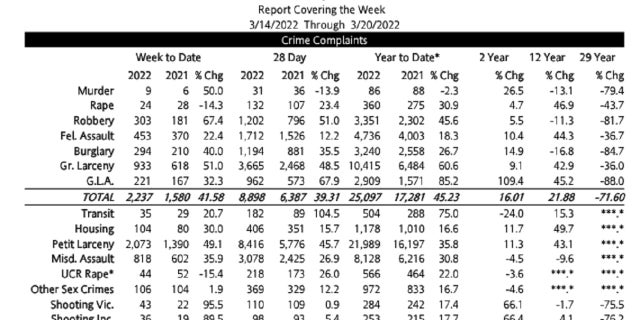
NYPD crime statistics for March 14 – March 20.
(NYPD)
Total index crime – meaning offenses that fall under one of the seven major crimes – is up 45% year to date compared to 2021.
In a statement provided to Fox News Digital regarding the new initiative, mayoral spokesperson Fabien Levy wrote that Adams has shown that New Yorkers’ safety “is his top priority.”
“New Yorkers are looking for action to stop the everyday crimes they are reporting,” Levy said. “Through precision policing, the NYPD can be trusted to enforce our laws and protect New Yorkers.”
Meanwhile, New York City’s Legal Aid Society (LAS) condemned the NYPD’s new initiative, and called it the “return to broken-windows policing.”
“Broken-windows policing has long been discredited for furthering mistrust between the police and the communities we serve, and this rebranded version will yield those same results, with the same disparate enforcement,” said Jennvine Wong, from Legal Aid’s Cop Accountability Project. “It will undoubtedly send more Black and Latinx New Yorkers to Rikers Island, a facility that is wholly incapable of caring for the people in its custody.”
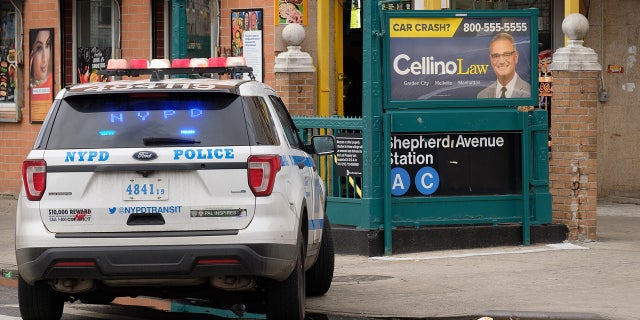
Police investigate a shooting inside the Shepherd Avenue subway station in Brooklyn, New York City on Sunday.
(Gardiner Anderson/New York Daily News/Tribune News Service via Getty Images)
NYC POLICE SEE 29 WEEKEND SHOOTING VICTIMS, UP 383% FROM 2021 WHILE WEEKLY NUMBER NEARLY DOUBLES
Wong further described the policy as “a botched opportunity for Mayor Adams to address the root cause of crime – poverty and a lack of robust services,” that would “send” the city back decades.
“Broken-windows policing” is the process of targeting lower-level crimes and public offenses in an effort to prevent conditions to escalating toward violence and away from safety.
But advocates and some officials have argued that the policy unevenly targets certain communities more than others and has little impact on crime levels.
Felipe Rodriguez, a professor at New York City’s John Jay College of Criminal Justice, rejected the idea that the new department policy was a reinstatement of “broken windows” because the new plan will not be numbers-driven.
“All the enforcement for broken windows was included in CompStat,” he said, referring to the NYPD’s practice of tracking crime statistics and trends, “so precinct commanders were held accountable when officers weren’t bringing in enough numbers.”
Rodriguez, who was a sergeant with the NYPD’s organized crime investigation division and spent 30 years on the force, noted that officers are given more discretion in the newly announced initiative regarding when to make arrests.
He added that the policy is “A very good idea” considering New York City’s current crime rate.
“Right now, there are so many minor violations that are leading up to more violent criminal acts. We’re at the point of anarchy,” he said. “This is worse than the 80s … There is now a total lack of respect between the community and officers because we’re not enforcing anything.”
He questioned whether New York City district attorneys would support the prosecution of these lower-level crimes.
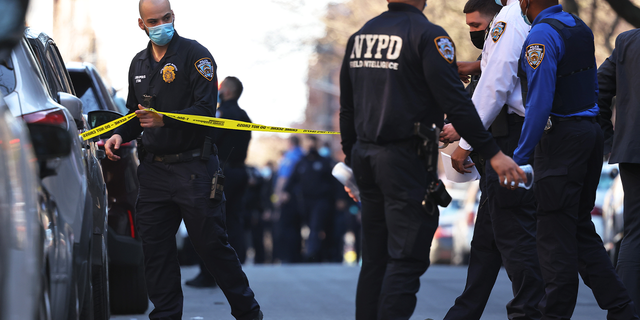
NYPD officers respond to the scene of a shooting that left multiple people injured in the Flatbush neighborhood of the Brooklyn borough on April 06, 2021, in New York City.
(Michael M. Santiago/Getty Images)
Former NYPD Commissioner Howard Safir was at the helm of the department during part of the “broken-windows” era and described it as the act of “paying attention to small crimes because you know that if criminals know that they’re going to be held accountable for the small crimes, they will be hesitant to carry guns…commit more crimes – or they will be prevented from committing more crimes,” he told Fox News Digital.
Asked if he saw the new policy as being a return to broken-windows policing, he responded: “No, this is a return to effective policing.”
“If done right, [it] will prevent us going back to, where we are now, like the bad old days, where 29 people are getting shot on the weekend,” he continued.
CLICK HERE TO GET THE FOX NEWS APP
Safir, who served as top cop from 1996 to 2000, said going after quality-of-like crimes “is exactly” what the city needs “to send the message to criminals that if they commit a crime large or small, they’re going to be held accountable.”
He praised Adams and NYPD Commissioner Keechant Sewell for the move.
“It is very clear: If you do, assertive policing, and you do it constitutionally – not just randomly grabbing people on the street, but doing it when you have reasonable suspicion that a crime is being committed – you can have a real effect on crime.”